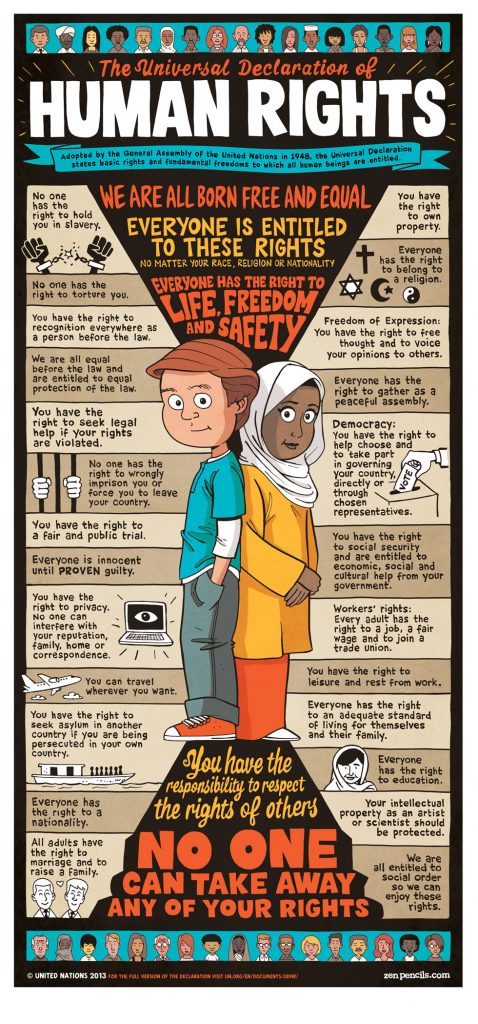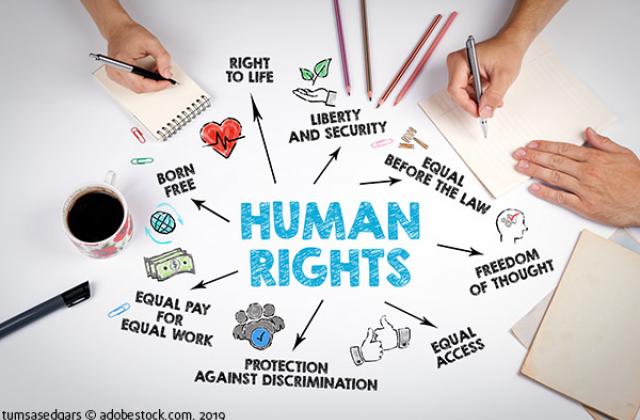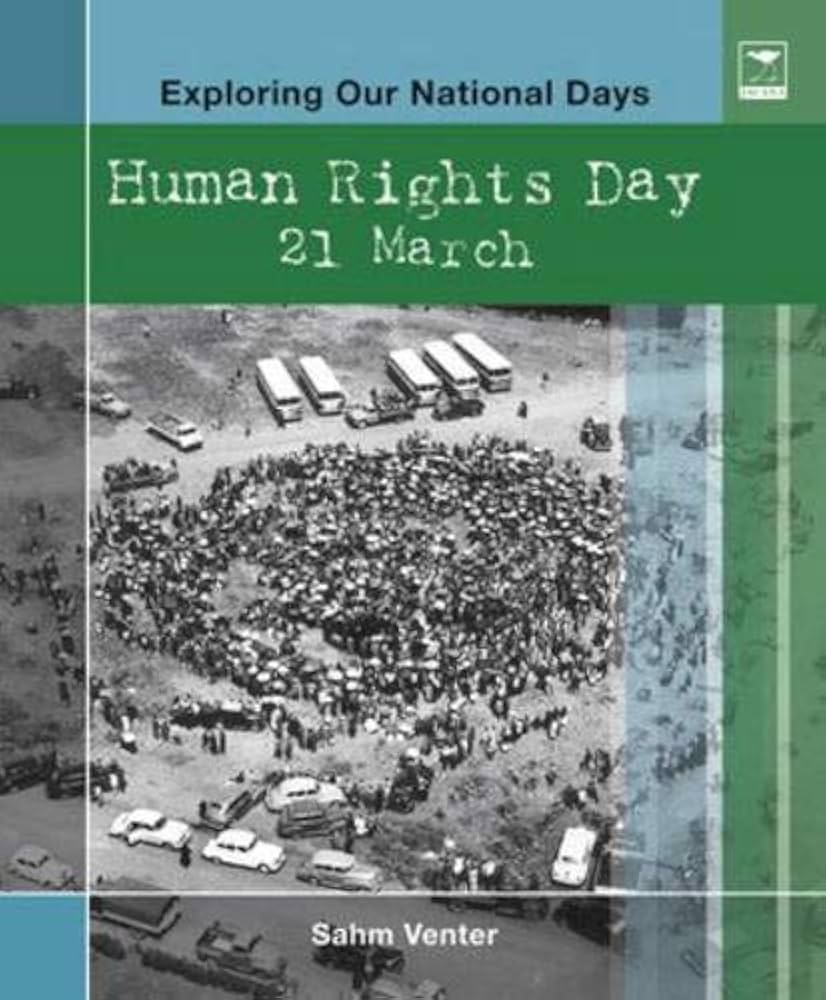History of Human Rights Day
Origins of Human Rights Day
Human Rights Day, celebrated annually on December 10th, traces its roots back to the aftermath of World War II, a time when the global community recognized the urgent need to protect fundamental human rights. The origins of Human Rights Day are deeply intertwined with the establishment of the United Nations (UN) in 1945, which aimed to promote peace and cooperation among nations.
Just three years later, in 1948, the UN General Assembly adopted the Universal Declaration of Human Rights (UDHR), a groundbreaking document that set a common standard for all human beings. The declaration was not just a response to the atrocities witnessed during the war; it was a clarion call for dignity, freedom, and justice worldwide.
The date of December 10th was deliberately chosen to honor the adoption of this monumental document. As the UN Secretary-General António Guterres stated, “We are living in a time when human rights and fundamental freedoms are under threat in every corner of the globe.” This highlights the continued relevance of Human Rights Day as it seeks to remind the world of the ongoing struggles for freedom and equality.
Evolution of the Universal Declaration of Human Rights
The evolution of the Universal Declaration of Human Rights has been dynamic and reflective of changing societal norms and values. Initially drafted by a diverse group of representatives from different cultural, religious, and political backgrounds, the UDHR consists of 30 articles that encompass civil, political, economic, social, and cultural rights.
Some key milestones in its evolution include:
- Drafting Process (1947-1948): The drafting committee, led by Eleanor Roosevelt, faced numerous debates on religious, political, and gender dynamics.
- Adoption (1948): On December 10, 1948, the General Assembly adopted the UDHR with an overwhelming majority. This moment was not just a victory for its proponents but a testament to the universal aspiration for dignity and freedom.
- Influence on Global Treaties: The principles enshrined in the UDHR inspired several treaties, including the International Covenant on Civil and Political Rights and the International Covenant on Economic, Social, and Cultural Rights, establishing a comprehensive framework for human rights protection.
The UDHR has not only set a precedent but continues to serve as a beacon of hope and a guiding principle for nations and activists alike. As individuals commemorate Human Rights Day, they reflect on the progress made and the work still needed to uphold the rights that are inherent to all human beings.
Through education, advocacy, and community engagement, people around the globe come together to promote understanding and respect for human rights, underscoring the ongoing relevance of this historic document.

Significance of Human Rights Day
Importance of Upholding Human Rights
Human Rights Day serves as a vital reminder of the significance of upholding human rights worldwide. Upholding these rights is not merely an ideal but a necessity for fostering peace, promoting justice, and ensuring the dignity of every individual.
When we talk about human rights, we encompass a wide array of fundamental freedoms, such as:
- The Right to Life and Security: Every person deserves to live without fear of violence or oppression.
- Freedom of Expression: Individuals should have the ability to voice their opinions freely without censorship.
- Equality Before the Law: No one should be discriminated against based on race, gender, or socioeconomic status.
The importance of these rights cannot be overstated. They lay the groundwork for a just society, where everyone can thrive. Take, for example, local activist groups advocating for LGBTQ+ rights. Their tireless efforts remind us that human rights are ongoing battles that require attention and commitment. When individuals stand up for their rights, they empower others to do the same, creating a ripple effect that strengthens community resilience.
Upholding human rights encourages accountability and transparency among governments, influencing policies that protect rather than suppress. As global citizens, the responsibility falls on us to demand respect for human rights in our communities and worldwide.
Global Impact of Human Rights Day Celebrations
Celebrations of Human Rights Day are observed worldwide, each contributing to a broader movement for justice and equality. These events serve multiple purposes:
- Raising Awareness: Events such as marches, conferences, and workshops help spread knowledge about human rights issues. Educational initiatives in schools and communities encourage dialogue around human rights, helping to foster empathy and understanding.
- Mobilizing Communities: Human Rights Day celebrations often attract diverse groups, uniting individuals who share a common goal. This phenomenon creates a powerful collective call to action. For instance, during various protests across the globe, voices united in solidarity can be more impactful in pushing for legislative changes.
- Inspiring Advocacy: The global visibility of Human Rights Day provides a platform for activists and organizations to amplify their causes. Numerous campaigns leverage social media, reaching thousands of people and inspiring them to engage with human rights issues actively.
For example, a campaign raising awareness about women’s rights may surge in momentum around December 10th each year, leading to policy changes or increased public support.
Overall, Human Rights Day acts as a springboard for ongoing discussions and actions, propelling efforts to build a more equitable world. By understanding its significance, individuals are inspired not only to reflect on the past but also to forge a better future where human rights are universally respected and guaranteed.

Human Rights Violations Around the World
Overview of Current Human Rights Issues
Despite decades of advocacy and awareness around human rights, violations persist in various corners of the world. These issues often stem from political regimes, cultural norms, or socioeconomic divides. Understanding the current landscape of human rights violations is crucial in fostering informed conversations and inspiring action.
Some prevalent human rights issues today include:
- Suppression of Free Speech: In many countries, governments crack down on freedom of expression, stifling dissent and limiting public discourse. Journalists, activists, and ordinary citizens face threats, imprisonment, and even violence for voicing their opinions.
- Gender Inequality: Women around the world still contend with discrimination, unequal pay, and limited access to education and health services. In several regions, domestic violence remains an unresolved epidemic, further exacerbated by societal stigma.
- Displacement and Refugee Crises: Conflicts in places like Syria and Myanmar have led to mass displacements, creating a humanitarian crisis. Refugees often face additional obstacles like xenophobia and insufficient resources.
- Racial Injustice: Systemic racism continues to affect many societies. People from marginalized communities often experience discrimination in areas like employment, healthcare, and law enforcement.
By acknowledging these issues, individuals can contribute to discussions that lead to impactful change. It is vital to keep these conversations alive, whether through community forums or social media campaigns. Personal stories can serve as powerful testimonies, illustrating the real-life implications of these violations.
Case Studies of Human Rights Violations
To truly understand the gravity of human rights violations, examining specific case studies can be enlightening.
- China’s Uyghur Population: Reports indicate that over a million Uyghurs and other Muslim minorities are held in re-education camps in Xinjiang. The Chinese government aims to suppress cultural and religious practices under the guise of counter-terrorism. Families have been torn apart, and individuals face forced labor and indoctrination.
- Syria’s Civil Conflict: The Syrian war has resulted in gruesome human rights infringements including torture, extrajudicial killings, and the use of chemical weapons. With millions displaced, the international community grapples with the responsibility of providing humanitarian assistance.
- The Rohingya Crisis in Myanmar: The Rohingya, a Muslim minority group, have faced systematic discrimination, culminating in mass violence in 2017 that forced over 700,000 to flee to neighboring Bangladesh. Once there, they live in makeshift camps facing inadequate access to basic needs like food, healthcare, and education.
Through these case studies, it becomes clear that human rights violations manifest in diverse forms but hold common threads of oppression and suffering. By sharing these stories, societies can collectively push for change, holding leaders and governments accountable for ensuring human dignity. As we continue to raise awareness, we can hope for a future in which such violations become a thing of the past.

Activities and Events on Human Rights Day
United Nations’ Role on Human Rights Day
The United Nations plays a pivotal role in the observance of Human Rights Day, serving as a central figure in advocating for human rights globally. December 10th marks not just a date but a moment of reflection and action as the UN highlights the ongoing need for unwavering commitment to human rights.
Each year, the UN hosts a variety of events and initiatives that help amplify the importance of this day. Here are some notable activities:
- Annual Commemorative Events: The UN organizes events ranging from conferences, panel discussions, and lectures that focus on critical human rights issues. These gatherings feature prominent human rights advocates, activists, and dignitaries who share insights and strategies to combat violations.
- Awards and Recognitions: The United Nations often uses this day to honor individuals and organizations who have made significant contributions to human rights. The prestigious UN Human Rights Prize is awarded to those who demonstrate unwavering dedication to promoting and protecting human rights.
- Global Campaigns: In the lead-up to Human Rights Day, the UN launches campaigns to raise awareness about specific human rights issues. The themes vary each year, addressing pressing topics such as racial discrimination, gender equality, and freedom of expression.
This coordinated effort helps foster a global dialogue, encouraging individuals and nations to engage with human rights issues meaningfully. It serves as a reminder of both progress made and the work ahead.
Community Initiatives and Advocacy Campaigns
Beyond the UN’s efforts, local communities and grassroots organizations play a critical role in celebrating Human Rights Day. Their initiatives are often heartening, demonstrating the power of community action in addressing human rights violations.
Some examples of community-driven activities include:
- Awareness-Raising Workshops: Local organizations often conduct workshops to educate community members about their rights and the importance of upholding them. These sessions might include discussions, role-plays, and the distribution of educational materials.
- Public Demonstrations and Marches: Communities come together to organize peaceful protests and marches, creating a collective voice advocating for change. For instance, an annual march in a local city might focus on women’s rights, drawing attention to gender-based issues affecting the community.
- Art and Cultural Events: Creative expressions like art exhibitions, film screenings, and performances have become powerful tools for advocacy. These events help convey messages surrounding human rights in an engaging way, often making complex topics more relatable to the public.
- Social Media Campaigns: In our digital age, grassroots organizations leverage social media platforms to spread awareness. Hashtag campaigns encourage citizens to share their stories and connect with others globally, amplifying the reach of their message.
By participating in these community initiatives, individuals contribute to a larger movement while fostering a culture of empathy and understanding. Each activity reinforces the notion that human rights are not solely the responsibility of governments or organizations; they are a collective effort that involves every one of us. Together, we can ensure that human rights remain a priority in our daily lives and decisions.

The Future of Human Rights
Emerging Human Rights Challenges
As we look to the future, it becomes increasingly clear that human rights face a myriad of emerging challenges that require our urgent attention. While some of these issues have deep historical roots, others have arisen due to current global shifts, including technological advancements and climate change. Understanding these challenges is vital for effective advocacy.
Here are a few of the foremost emerging human rights challenges:
- Digital Rights and Privacy: As technology becomes integral to our lives, concerns around digital rights have surged. Issues include surveillance, data privacy, and online freedom of expression. With personal data becoming a commodity, many individuals are unaware of how their information is collected and used, raising critical questions about consent and individual rights.
- Climate Change and Environmental Justice: The impact of climate change on human rights is becoming increasingly evident. Communities in vulnerable regions suffer displacement, food shortages, and health crises due to environmental degradation. Advocates are beginning to recognize the link between environmental issues and human rights, pushing for policies that emphasize sustainability and equity.
- Rights of Refugees and Migrants: In our rapidly changing world, the number of displaced persons continues to rise. Many refugees and migrants encounter severe hardships, including xenophobia, inadequate living conditions, and lack of access to basic services. As nations grapple with these challenges, ensuring the protection of these individuals’ rights must remain a priority.
- Systemic Inequality: Racial, gender, and socioeconomic inequalities continue to plague societies worldwide. As movements for social justice gain momentum, advocates seek to dismantle these systems of oppression while recognizing the need for intersectional approaches that address various forms of discrimination.
Importance of Continued Advocacy and Awareness
With these challenges on the horizon, the importance of continued advocacy and awareness cannot be overstated. It is through concerted efforts that individuals, organizations, and governments can strive to create a more just and equitable world.
- Education and Empowerment: Raising awareness about human rights issues is essential to mobilize action. Schools, community centers, and online platforms can serve as hubs for education, empowering individuals to understand their rights and those of others.
- Global Solidarity: The interconnectedness of today’s world means that advocating for human rights transcends borders. Building global coalitions and partnerships among organizations fosters collaboration and strengthens the collective power to challenge injustices.
- Engaging Future Generations: Instilling a commitment to human rights in younger generations is crucial. Encouraging youth participation through volunteer opportunities and advocacy programs can create a ripple effect of awareness and action.
- Leveraging Technology for Good: Social media and technology can amplify voices that are often marginalized. As more individuals are empowered to share their stories online, we can create a powerful narrative that drives change.
In summary, the future of human rights hinges on our ability to confront emerging challenges head-on while fostering a culture of awareness and advocacy. By understanding the interconnectedness of these issues and working collectively, we can ensure that fundamental human rights are safeguarded for all. Every effort counts, and together, we can inspire change that reverberates throughout society.
Conclusion: Reflecting on Human Rights Day
Summary of Human Rights Day’s Purpose
As we draw our reflections on Human Rights Day to a close, it’s essential to reiterate the significance of this observance in our global tapestry. Celebrated every year on December 10th, Human Rights Day serves as a poignant reminder of the fundamental rights that belong to every individual simply by virtue of being human.
The purpose of Human Rights Day is multifaceted:
- Raising Awareness: This day brings attention to the ongoing struggles faced by countless individuals around the world who are denied their basic rights. Through campaigns, activities, and media coverage, the day inspires discussions that often remain hidden in everyday conversations.
- Commemorating Progress: Human Rights Day allows us to celebrate the advancements made over the decades, including the establishment of the Universal Declaration of Human Rights in 1948. By acknowledging these milestones, we can motivate others to continue to strive for progress.
- Mobilizing Action: Ultimately, Human Rights Day encourages individuals and communities to take action. Whether through advocacy, education, or community service, the day calls for participation at all levels, reminding us that change begins with awareness and individual responsibility.
By understanding the purpose behind Human Rights Day, we can collectively recommit to supporting and advocating for the rights of others, creating a ripple effect of positive change.
Inspiring Action for Human Rights
The true power of Human Rights Day lies in its ability to inspire action and ignite passion within individuals and communities alike. As we reflect on this occasion, it’s vital to consider how each of us can contribute to a culture that respects and upholds human rights for all.
Here are a few actionable steps anyone can take:
- Educate Yourself and Others: Take the time to learn about human rights issues locally and globally. Share this knowledge with friends, family, or colleagues to open up conversations and expand awareness.
- Support Advocacy Organizations: Whether through donations, volunteering, or participation in campaigns, supporting organizations dedicated to human rights can amplify your impact. Many grassroots movements thrive on community involvement and support.
- Engage in Your Community: Attend local events, workshops, or seminars related to human rights issues. Engaging actively in your community can help raise awareness and foster connections with like-minded individuals.
- Utilize Social Media: Use social media platforms to share information, raise awareness, and amplify the voices of marginalized communities. One tweet, one post, or one shared article can reach far and wide, influencing public perception.
- Advocate for Change: Write to your elected officials about important human rights issues in your area or organize community discussions to bring attention to pressing concerns. Your voice matters.
In conclusion, Human Rights Day serves not just as a date on the calendar but as a catalyst for renewed commitment to ensure that the rights of every individual are recognized and respected. Reflecting on its purpose inspires us to take meaningful action, affirming that while the journey towards universal human rights continues, our collective efforts can pave the way for a more equitable and just world. Together, we can turn reflection into action and hope into tangible change for future generations.

